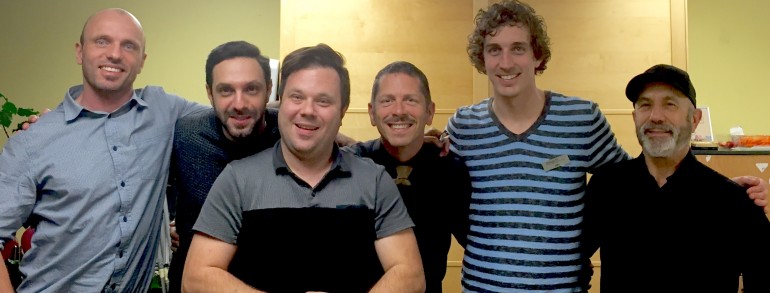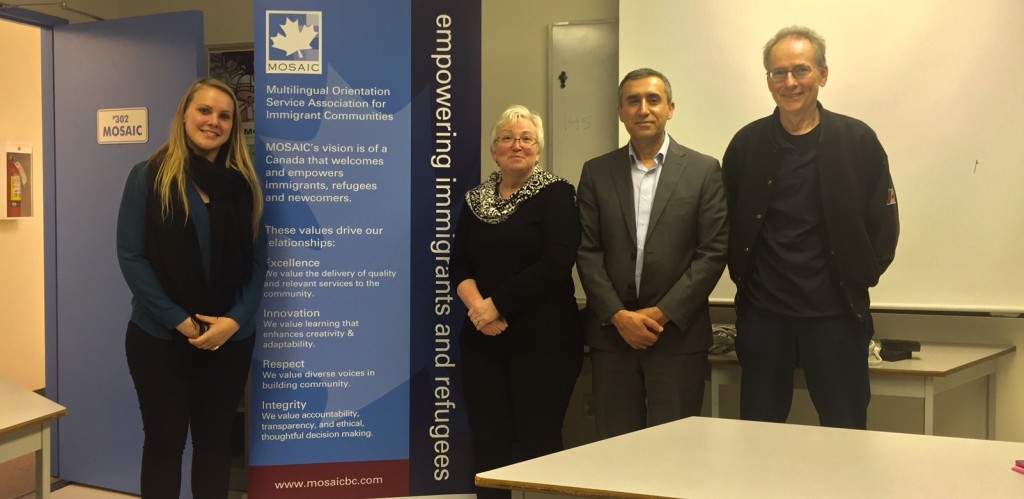As February rounds out, I thought I’d take a moment and share the valuable lessons the Foundation of Hope has come to learn and expand on so far this year. These are lessons rooted in inclusivity and compassion. They focus on awareness and acceptance, which draws attention to the core of FOH’s purpose.
On queer competency – a lesson in awareness
How aware are you on this topic? On February 15th, five FOH board directors attended a queer competency training session hosted by Joel Von Flugen on behalf of the folks at Qmunity. It is fair to say that five cisgender gay males don’t adequately represent the sexual or gender diversity contained within our Board of Directors. Further yet, the board itself does not fully represent the diversity for which we advocate as an organization. So it is incumbent upon those able to attend the learning session to engage, share, and further educate others beyond the excessively narrowed view of sex, sexuality, and gender as binary subjects.
One valuable element that FOH brought to the session was our range in age demographic. Jeffrey Fisher and Carl Meadows, for example, reflected on the evolution of gay rights activism in the late 20th century. Sexual and gender identity terms have been adopted across different cultures over time along with associated euphemisms: queer, gay/lesbian/bisexual/transexual, genderqueer, cisgender/transgender, intersex, questioning, asexual/pansexual, two-spirited, etc… It is an ever-growing list of inclusivity. And for every term there is an appropriate set of pronouns. The terms I’ve just listed represent a mere subset of identity perspectives. I haven’t listed them all and know that I still have much to learn.
It’s a broad subject that can be daunting. For me personally, I hold the greatest concerns about others’ sensibilities. Just in compiling that list, I put myself in a vulnerable position of being perceived or labeled as insensitive. Why did I lump certain terms and distinguish others? What gives me the right to define or label anything? I understand this and unfortunately it worries me to the point of not wanting to speak at all for fear that I am promulgating bias or intolerance, which adds to the confusion.
Joel was extremely helpful. He cut through the confusion held among our group and eloquently explained why these different terms and their usages matter so much. He provided hypothetical scenarios of intolerance that resonated within us all. Joel intelligently conveyed the need for heightened awareness. There was no shortage of context provided among our own experiences as a group, and even though much of what was discussed will forever stay in that room, we all left feeling more aware and better prepared to promote inclusivity within the Foundation and beyond.
On private sponsorship – a lesson in acceptance
The notion that one Canadian or a group of Canadians are willing to gather the means necessary to bring a refugee into Canada is an indelible aspect of what it means to be Canadian. We are a country of immigrants, from the First Peoples to arrive during the last Ice Age to the current wave of Syrian migrants coming to Canada under a banner of acceptance born out of an historic federal election mandate.
On February 18th, the Multilingual Orientation Service Association for Immigrant Communities (M.O.S.A.I.C.) held a public information session to advise Canadians on the paths for private sponsorship in Canada. M.O.S.A.I.C.’s Refugee Working Group has been looking at trends, assessing levels of need, and developing responses to these needs. This includes the Refugee Family Reunification List developed for would-be sponsors in B.C. with families that are refugees. About 200 people are currently be processed under this program. Another key program is the federal Refugee Sponsorship Training Program (RSTP) managed by Catholic Crosscultural Services and based in Ontario. In Western Canada, RSTP is also managed by M.O.S.A.I.C.
Refugee Sponsorship Support Program (RSSP) Manager Saleem Spindari explained how, through its 30 offices in the greater Vancouver area, M.O.S.A.I.C. is providing support for 1000 refugees following the crisis in September 2015. RSSP trains lawyers to help sponsors with the process itself and help refugees meet requirements for private sponsorship. RSSP lawyer Kassie Seaby chaired a session explaining the options available in Canada. She presented Lawyer David McLeod, who offers a course on Refugee Protection through UBC Continuing Studies, to describe avenues for private sponsorship in Canada and answer questions held by the attendees.
McLeod explained how policy has evolved for private sponsorship since the onset of the refugee crises in Iraq and Syria. Such policy has reduced the burden of proof required for Iraqi and Syrian refugees by Immigration, Refugees and Citizenship Canada, formerly known Citizenship and Immigration Canada, at its Central Processing Office in Winnipeg. For all other refugees, he described the role of sponsorship agreement holders (SAHs), groups of five (G5), and community sponsors (CS).
The other key representative at the session was Iris Challoner, who is a refugee information and referral specialist. Through her church, Iris helped resettle a Syrian woman and her two children last spring. She is knowledgable about the role played by various SAHs that have been approved by the Canadian government alongside constituent groups (CG) acting as co-sponsors. M.O.S.A.I.C. is currently working to be recognized as a SAH under the federal government’s refugee acceptance process.
Inclusion of M.O.S.A.I.C. as a SAH will vastly expand upon the options available for individual Canadians looking to take up private sponsorship of LGBT+ refugees seeking asylum or escaping persecution from their countries of origin. These are individuals that remain persecuted when they are among refugees in camps. It is hard to imagine how such an overt lack of both acceptance and inclusivity can affect such individuals on top of the state-level persecution generally affecting populations of refugees living in camps.
If you are interested in private sponsorship, there are many resources available to assist you, from the application process itself through to the arrival and resettlement of newcomers to Canada.


Leave a reply